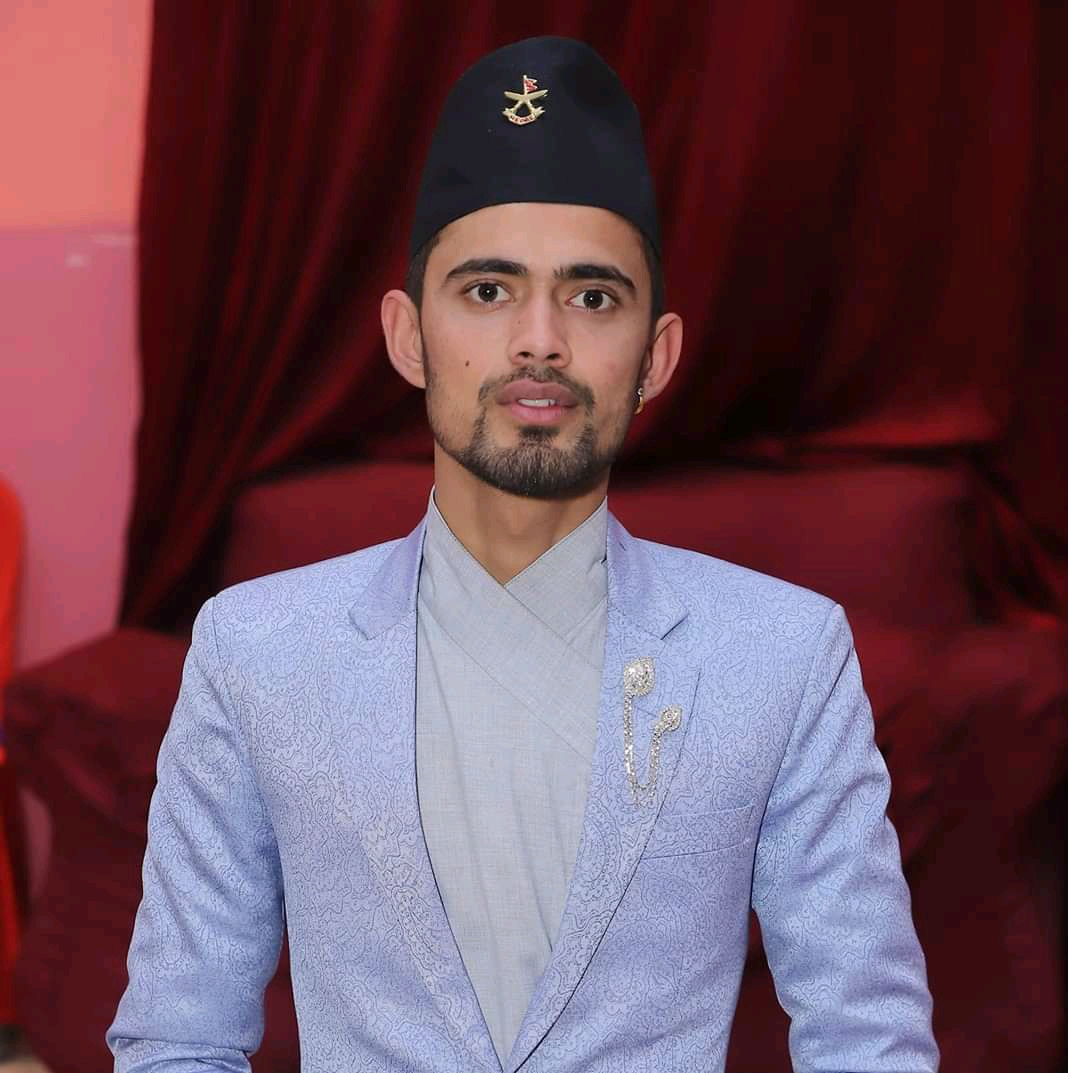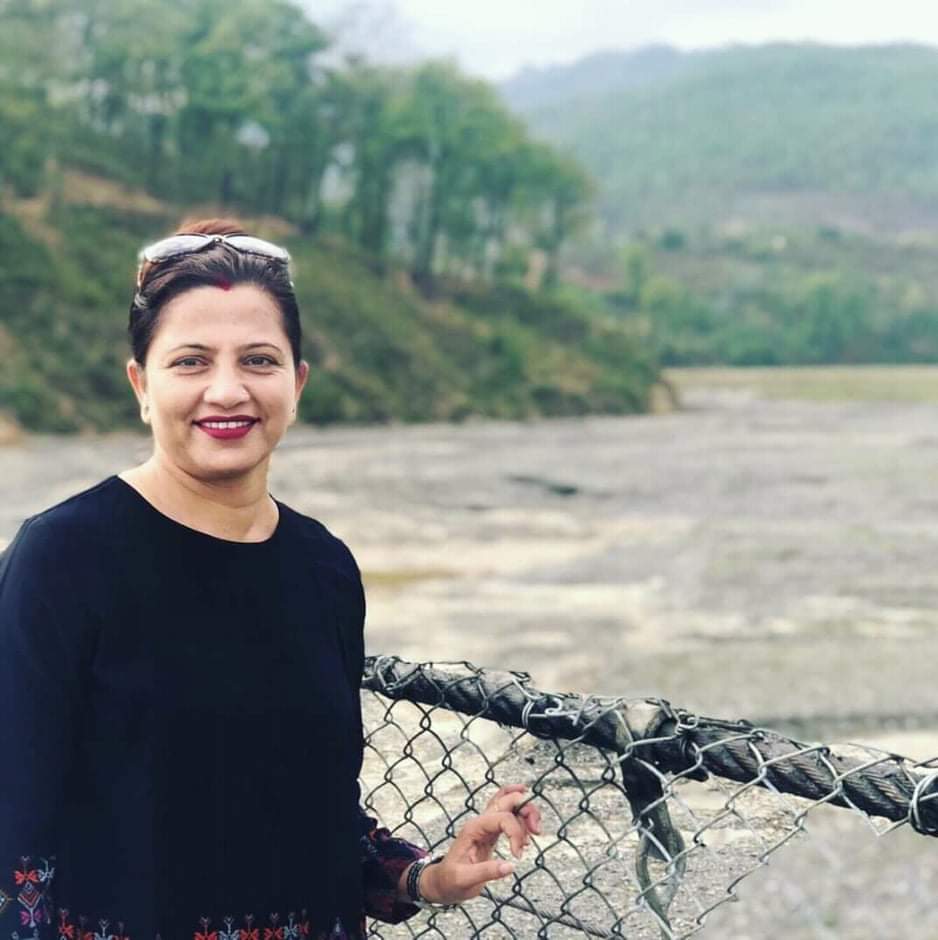Now Nepal will rap online
Some good news for aspiring rappers and hip-hop hustlers of Nepal. “Sabda Sangram”, an online rap battle, is taking in contestants for the show. Conceptualized by musician/producer KTM Souljah with media-person Nita Pradhananga, and designed and produced by Kathmandu-based multimedia company Mero Mazzako Karyalaya, “Sabda Sangram” will be an outlet for aspiring rap and hiphop musicians to display their creativity, while also sharing their music with the audience.
The contest has no restrictions in terms of age or gender and is looking for folks who have the rhythm and can let their words flow. To register, interested participants can send a recording of them rapping 16 bars at [email protected]. The contest will be aired on Skathi Records’ YouTube page and the winners will get cash prizes.
Nepalis want Indian troops to leave Kalapani
Whoever you chat with these days, there are only two talking points: the coronavirus pandemic and the Indian highhandedness on Kalapani. Heeding the public sentiment, APEX has in the recent past brought to you common folks’ views on nearly every aspect of the pandemic. Now we talk to people from different walks of life for their take on the Kalapani land encroachment.
A positive message
- Ganesh Karki, 34, blogger

The unity of both the opposition and the ruling parties on this dispute gives a positive message. That land belongs to Nepal, and the issue should be resolved through talks at government and diplomatic levels. But, first, the Indian forces should immediately leave Kalapani and other disputed lands. Only then will there be a realistic hope of resolution.
Fight with reason
- CP Bhusal, 25, IT expert

Because of its domineering attitude, India does not have sound relations with its neighbors—not only Nepal but also Pakistan, China, Bhutan, Bangladesh, etc. I am proud that my government has dared publish a new map of the country accommodating the disputed but clearly Nepali territories. My suggestion: fight with reasons rather than emotions.
War is unwise
- Sujata Shiwakoti, 22, student

The land east of the Kali River is ours. And we have paper evidence too. The government will never be able to get back the land without its troops in the Limpiyadhura region. And all Nepalis should support efforts to protect the country’s territories. However, it is not wise to start a war.
Ignoring our people
- Achyut Nepal, 24, travel manager

Nepal has been indifferent to the people living in Kalapani and Lipulekh areas. I agree that the land belongs to Nepal but our government has always neglected the people there. Nepal should take care of its people. If we were careful, this day may not have come.
Plenty of evidence
- Jagdish Bhandari, 35, historian/photo collector

The Kali River was marked as Nepal’s border with India in the Sugauli Treaty. And it originates at Limpiyadhura. So the whole area east of the river belongs to Nepal. The census of 1961 provides additional evidence. We can seek UN’s help and take this issue to the International Court of Justice. India has been encroaching on our border as it thinks Nepal is weak and its unstable governments won’t complain.
History on our side
- Radha Sharma, 43, school principal

Besides the Sugauli Treaty, the records of taxes paid on food-grains by the people of Limpiyadhura in 1938 and the voter list of 1959 general elections are evidences in favor of Nepal’s claim on the territory. We cannot be assured Nepal will get back the land just by issuing the new map. It is important to get the Indian troops to retreat from Nepali land first.
Side of the truth
- Prajwal Luitel, 30, priest

If we have historical evidence, why be shy to stake our claim? If you are on the side of the truth, you need not fear and compromise the country’s sovereignty. If not, then it is useless to talk. So, first, we have to arm ourselves with strong evidence.
Need for deft diplomacy
- Aarti Ojha, 23, student

Our previous governments ignored the posting of Indian troops on Nepali territory. That is the root cause of the dispute. Lipulekh, Kalapani, and Limpiyadhura all belong to Nepal. It is necessary to remove the Indian troops from Kalapani through diplomatic efforts as soon as possible.
Stand up and fight
- Sandeep Kattel, 32, lecturer

If India does not agree to hand over our land, we should show our love for the country and fight for its sovereignty. How long shall we live as cowards? We won’t have any other option if high-level discussions fail. No matter what, we must not compromise with our national pride.
Stop encroaching
- Upasna Upadhyaya, 21, assistant pharmacist

According to the Sugauli Treaty, the areas of Kalapani, Lipulekh, and Limpiyadhura belong to Nepal. But India refuses to accept it. So both the countries should come to the talks-table with all the evidences they can marshal. They should come to a resolution. And India should from that point stop encroaching on Nepali territories.
Arthur Gunn: A winner of many hearts
As Dibesh Pokharel aka Arthur Gunn made history by becoming the first Nepali-origin singer to reach the finals—and end up as the first runner-up—of the American Idol franchise’s 18th edition, Nepali social media was full of praises for the 22-year-old. Musicians, actors, entertainers, media personalities and common people alike devoted their social media posts to the young singer originally from Kathmandu who moved to Kansas, US five years ago.
Not that Pokharel’s journey in the American Idol had gone unnoticed by thousands of his fans around the world. He had caught the eyes of Nepali audiences right from the auditions held in February this year, when he impressed the judges with his unique vocal texture and performance skills. As he continued dishing out best performances week after week, his fan following grew to more than just Nepalis. By the time of the finale, Pokharel had become among the favorite contestants of people around the world.
Performing the renditions of Creedence Clearwater Revival’s “Have You Ever Seen The Rain” and Gavin DeGraw’s “I Don’t Want To Be” for the finale, Pokharel lost the coveted title to former subway singer Just Sam from New York. In the unprecedented times caused by the Covid-19 pandemic, the reality show this year had changed its format and started telecasting from the homes of the top 20 contestants, making this season the most challenging in American Idol history.
The burden was also on his fans in Nepal to vote for him. As the American Idol website did not allow voting from Nepal, Nepali fans had to resort to using VPNs to vote for Pokharel. But this did not stop the dedicated ones from making sure Pokharel passed through every episode with the highest votes. Social media posts on how to download the VPN and trick the website made rounds in the Nepali user circuit to ensure that there would be no dearth of voters for the ‘Nepali boy’.
A Facebook group named “Arthur Gunn (Debesh Pokharel) OFFICIAL Fan Club” emerged in February with the purpose of campaigning for Pokharel. By now it has more than 56,000 members comprising not only Nepalis but fans from around the world, now all celebrating his victory.
“You have won for me. I’m sorry this one was stolen from you. Not fair but America knows this one was yours! You’ll make it so far my friend. Can’t wait to go to your concerts!” an American fan writes on the Facebook group.
Biswaz Gurung, a resident of Michigan, US is one of the seven admins of the Facebook group. A fan of Pokharel for his ‘simplicity and unique voice’, Gurung dismisses conspiracy theories Pokharel’s fans have come up with—the most insidious one being that he couldn’t come first due to his race. “We definitely feel bad. We wanted him to win. But we have to accept the results and be proud that he became a runner up,” Gurung says. “We need to learn to accept the verdict of the fans.”
APEX’s very own columnist Jackie Taylor was one of the ardent supporters of Pokharel from the beginning. Her favorites made it to the top two. “I’m just happy Just Sam came first and Arthur came second,” she says. “Just Sam is an amazing busker and I like Arthur for his voice and the whole bluegrass thing and for the obvious fact that he’s a Nepali.”
Musician and media person Abhishek Mishra, who had interviewed Pokharel for his “Rock Show” on YouTube before he went to American Idol, is also all praise for the singer. “The guy can sing at the drop of a hat. He has no stage fright at all,” Mishra recalls watching him perform live. “He is generally soulful and soft spoken in person but lets himself loose on the stage.”
With so much support from musicians and non-musicians alike, Pokharel promises to be different from the previous reality show contestants of Nepali origin whom the people supported just because of their nationality. Pokharel is not only a singer but also a songwriter who has recorded original material and mixed and mastered most of them himself. The hope for his Nepali as well as non-Nepali fans is that he will justify the enormous support they have heaped on him.
MCC not related to IPS: Senior US official
Kathmandu: The United States has said that the Millennium Challenge Corporation (MCC) established in 2004 is completely unrelated to President Donald Trump’s vision of an open and free Indo-Pacific.
Speaking in a special ZOOM press briefing, Alice G. Wells, Acting Assistant Secretary, Bureau of South and Central Asian Affairs said that there has been a great deal of disinformation about the America assistance to Nepal.
Over the latest debate on the MCC, she said, it’s “…much more about internal politics in Nepal, and I would certainly hope that the leadership of your nation who negotiated this agreement… brought in all major political parties during the negotiations over three years…. that the leaders of your nation are going to stand up for the people of Nepal and move forward with the MCC.”
Asked about the speculation that China does not want Nepal’s endorsement of the MCC, which in turn is the reason for the opposition against it from a section of Nepal’s ruling party leaders, she said, “Government of Nepal is sovereign… it does not take dictation from China. It will do what is in the best interests of its country to advance the economic welfare of its people.”
“This program is specifically designed by [the US] Congress to provide poverty alleviation through creating greater confidence in a country’s ability to implement economic programs that are designed to unlock the blockages to growth,” she added.
“The MCC, in which Nepal government also committed another $130 million in additional funds above the $500 million that we seek to allocate, it’s designed to promote hydroelectricity transmission, including sales across border, and also to reform the road structure so that you open up the economy, potentially, to increased foreign direct investment.
“The fact that this grant assistance—not a loan, grant assistance—has become a political football is disturbing,” she said.



















